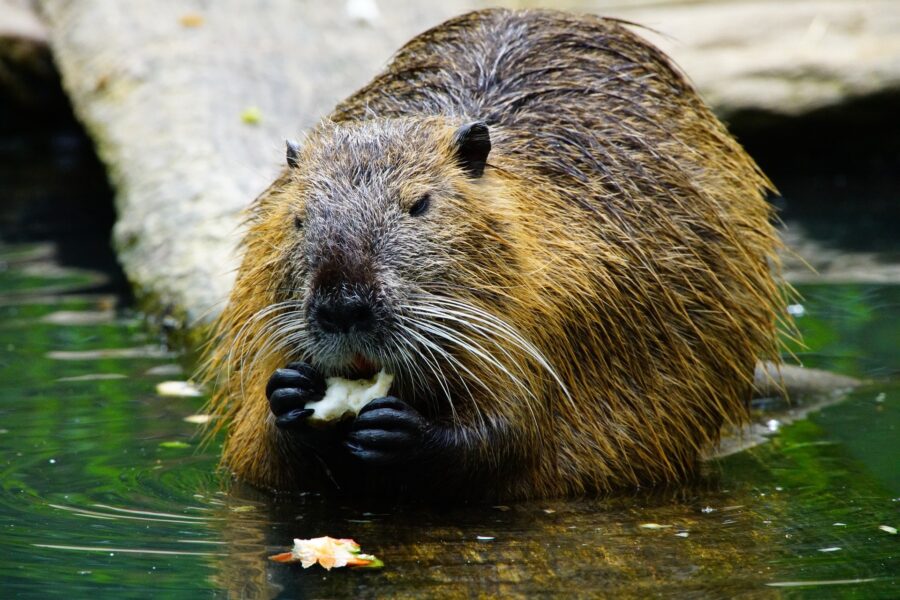A Beaver Killed Canada’s Internet
A busy beaver chewed through a cable in multiple places and killed the internet in Canada.
This article is more than 2 years old

In what Telus calls a “uniquely Canadian turn of events”, a beaver chewed through a very important cable and turned off the internet for 900 customers living in Northern British Columbia. Of course, these animals are known for being very productive (hence the term “busy beaver”), so the animal chewed through the fiber cable at multiple points, just to make sure it got the job done right.
Fortunately, the Canadian internet company, Telus, was able to get the damage caused by the beaver fixed fairly quickly. Service went down for customers at approximately four in the morning. Despite the extensive damage caused, they were able to get customers back online by 3:30 pm on Sunday. This means customers weren’t able to get on their home internet and had spotty cell phone coverage for most of two full days due to the beaver’s efforts. That doesn’t sound as bad as it could have been, but of course, this is during pandemic times where we’ve become more reliant on our access to the internet. A full weekend offline was likely fairly miserable for those who experienced the effects of the busy beaver’s efforts.

While repairing the issue, Telus workers discovered a lot more about what the beaver had been up to. Apparently, Telus buried their fiber cable three feet underground. This internet cable is protected by a four-and-a-half-inch thick conduit. The animal, or possibly multiple animals, live at a nearby dam. They dug underground by the creekbed. They found the underground cable and then chewed through it in multiple locations.
Apparently, the beavers decided to celebrate this victory against the internet cables by decorating their home with Telus materials. Workers at the site found that the animal’s home was covered with things like fiber marketing tape, which the animals would have only found buried underground.
Meanwhile, the Telus workers had a difficult time exposing the cable in order to repair it. While the beaver is apparently an expert at getting three feet underground to chew away at the internet cable, the workers had to bring in additional equipment and technicians in order to uncover the fiber cable because the ground was partially frozen.

Rural communities face bigger threats of internet outages. This is because of troublemakers like beavers and the great stretches of land that fiber cables have to cross. A few weeks ago in western Massachusetts, a tree caught fire, burned through a fiber cable, and resulted in the loss of internet for approximately 2,000 people. Today, as the internet becomes a more basic part of our lives, people want greater protection of their internet access, so something as simple as a beaver can’t take it down. Many consider it an issue of basic infrastructure, like roadways and bridges. President Joe Biden has made expanding broadband internet service part of his American Jobs Plan. In Maine, where this is seen as a bipartisan issue, 74% of voters agreed to a $120 million bond to expand broadband and transportation needs that the pandemic has drawn more attention to.
Yes, beavers can always chew through a fiber-topic cable, but if there were wider broadband coverage or redundant lines, the internet could stay on. The issue is that these cables are often using the same routes that telephone companies built years ago. The telephone companies aren’t interested in spending money on redundant lines, particularly in rural areas where they serve fewer customers. However, the internet isn’t going away. We’re going to become more reliant on it. As it’s seen more as a basic piece of infrastructure, it’s likely that broadband and/or redundant lines will become something companies have to move toward to protect customers from the busy beavers of the world.










